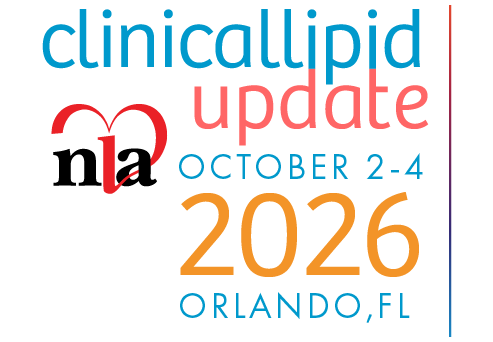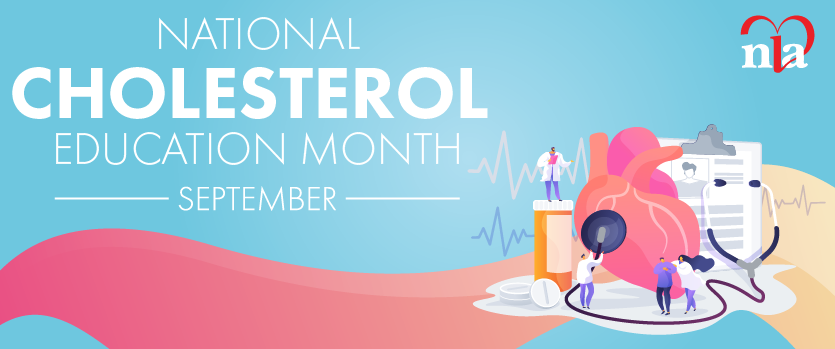Those born with familial hypercholesterolemia (FH) know better than anyone else that they have a family history of early heart disease. Many know they have a cholesterol level that is very high to “off the charts.” But far too many of the 30 million people living with FH suffer the impact of aggressive cardiovascular disease, often in the prime of their lives, without ever hearing the words “familial hypercholesterolemia.” We do not know how many individuals die without ever knowing they inherited FH, but we do know that approximately 90% of individuals with FH are undiagnosed.1,2 This can be a tragedy, considering all the tools we have at our disposal to help these families live longer, healthier lives.
KATHERINE’S STORY
I was one of the >90% who did not know she had FH, until long after my event. The cardiologist who placed a stent in my left descending artery told me that I had the arteries of a 70 year old, but he didn’t say why.
Since the age of 15, lab results showed my low density lipoprotein cholesterol (LDL-C) was in excess of 300 mg/dL. My mother made me eat fish and apples by the pound, but my LDL-C barely budged. As a young woman I worried, understanding by then that I was at risk of having heart disease. But I had no idea how at risk I was.
It was not until I was 41-years-old and had been diagnosed with atherosclerotic cardiovascular disease (ASCVD) that a physician explained FH to me. Dr. John Guyton, Professor of Medicine at Duke University School of Medicine and a founding member of the National Lipid Association, was generous with his knowledge and his time.
He clearly communicated the need for my husband and me to screen our children. He treated me with a sense of urgency. He assured me that we were doing everything we could to pry me from the grasp of heart disease.
Eventually, everyone is a patient. The lucky ones relegate this role to a routine teeth cleaning, an annual check-up, or the far away possibility of old age. Then there are those of us with conditions that propel us toward illness. For people living with chronic or life-threatening conditions, being a patient creeps into every aspect of our lives.
One of the reasons I was compelled to start the FH Foundation is that I realized that people impacted by FH were not the only ones who lacked a clear understanding of this common condition. Over the years, I have had the honor to meet hundreds of committed and caring physicians. Many of them genuinely believed that if they were treating someone’s LDL-C, it did not matter whether they diagnosed them with FH or not. We are learning from genetic studies and other research that the FH diagnosis does matter. People with FH are at much higher risk for early cardiovascular disease due to their lifetime exposure to extremely high LDL-C.3,4
When I finally had a name for my condition, there was no information available about FH that did not require a subscription to peer-reviewed medical journals. Individuals with FH need good information and support at every step along the way. Abbreviated office visits, even with knowledgeable providers, are not enough. A woman with FH cannot safely wait until after she has had her children to start statins and other lipid-lowering therapies. Families need to be educated that there is a critical need to diagnose and treat their affected children in order to prevent heart disease.
My own personal experience and perceived need of others with FH led me to create the FH Foundation.
It has been my honor to work with lipid experts across the U.S. and around the world in creating the FH Foundation. Our mission has been to advance research, education, and advocacy of FH. It has also been a blessing to work with individuals who bravely face their vulnerability. If you diagnose an individual with FH, you now know that there is somewhere they can go for support, a solid body of medical evidence, and a growing community to fight alongside them.
What does the FH Foundation do?
Six years ago, we created the FH Foundation to be a research and advocacy organization based on an innovative partnership of affected individuals, physicians, and scientists. Leaders in the field stepped up and joined the FH Foundation as Board Members, members of the Scientific Advisory Board and champions within their own institutions.
Today, 50,000 people come to the FH Foundation website each month. Most visitors are affected individuals or healthcare professionals. The most common request is for help with finding an FH specialist. We love to connect people to great lipidologists and other practitioners who are fluent in the science and management of FH. When we work with patients and their families we have the opportunity to reinforce their healthcare provider’s guidance. We inform individuals of current clinical trials and offer webinars and other educational resources that help people understand why they would want to pay for and take their medications every day, month after month and year after year.
Individual education and support help people take charge of their own health, but we need systemic change to ensure that everyone with FH is found in time to prevent heart disease. To bring about changes in healthcare delivery and public policy, more than anecdotes are necessary. One of the driving missions of the FH Foundation is to compile datasets and drive analysis to inform and disseminate information about the present state of FH in the United States. We need to know both where we are succeeding and where there are gaps in understanding and care.
To this end, the FH Foundation created a national FH registry for the United States.5 Countries that have made substantive progress in increasing the rate of diagnosis of FH have invested in systematic screening programs and established registries. The CASCADE FH® Registry is a hybrid design, including a clinical network of 40 leading lipid and preventive cardiovascular centers across the U.S., as well as a Patient Portal where individuals can enter their own data from anywhere. The Patient Portal includes questions regarding quality of life and offers an easy-to-use digital pedigree tool to share with family members and the healthcare team.
After five years, the CASCADE FH® Registry is one of the largest longitudinal FH databases in the world. It provides significant insight into the natural history of FH and the continued unmet need for further risk reduction in the FH population.6 These data help us to advocate for change with healthcare providers, insurance organizations, and governmental agencies.7 For instance, data from the CASCADE FH registry was critical in the application for an ICD-10 code for FH (also sponsored by the NLA), which in turn, will enable more precise diagnoses and data analytics. As much progress as we are making, we cannot lose sight of the over 1 million people in the U.S. who still have not received an accurate diagnoses and are unlikely to be receiving the right care as a result. 8,9 Outside of the U.S., screening efforts have largely been orchestrated by governments with single-payer systems.
Individuals with FH reach the threshold for coronary heart disease during the prime of their productive lives. These healthcare systems have recognized the social and financial upside of preventing myocardial infarctions or invasive procedures through identification and early treatment of this high-risk population.
Recognizing the human and financial costs of not finding these individuals, we developed FIND FH®. Three years later, we have a machine-learning algorithm to flag individuals with profiles consistent with FH across the country. The task in front of us is engaging healthcare providers at scale to integrate this information into care so physicians can be alerted of the need to make a diagnosis.
Lack of diagnosis is unequivocally the No. 1 barrier to care to FH, but access to therapies, whether it is high-dose statins or other lipid-lowering therapies, is also a source of anxiety and financial burden on patients and an impediment of the optimum care. For example, although payers often agree in principal that individuals with FH should have access to PCSK9 inhibitors when prescribed by their physician, our analysis shows that high rejection rates have made access to these medications a serious challenge for FH patients.
Our common goal is to assure that all individuals with FH are diagnosed and proactively managed. As far as life-threatening genetic conditions go, we have reason to be optimistic. There are multiple safe and effective therapies available today. Identification is relatively inexpensive and straightforward. Every time you identify and care for an FH patient, you have the opportunity to change the future of an entire family.
I want to say thank you to the many physicians, nurses and genetic counselors who are NLA members and also members of the FH community. Your expertise and your commitment have been and continue to be key in assuring that everyday we move closer to FH becoming a model for precision health and for millions of people, a story of hope.
Disclosure statement: Ms. Wilemon has no disclosures to report. Dr. Knowles has received a research grant from Amgen. References available here.





.jpg)
.png)













